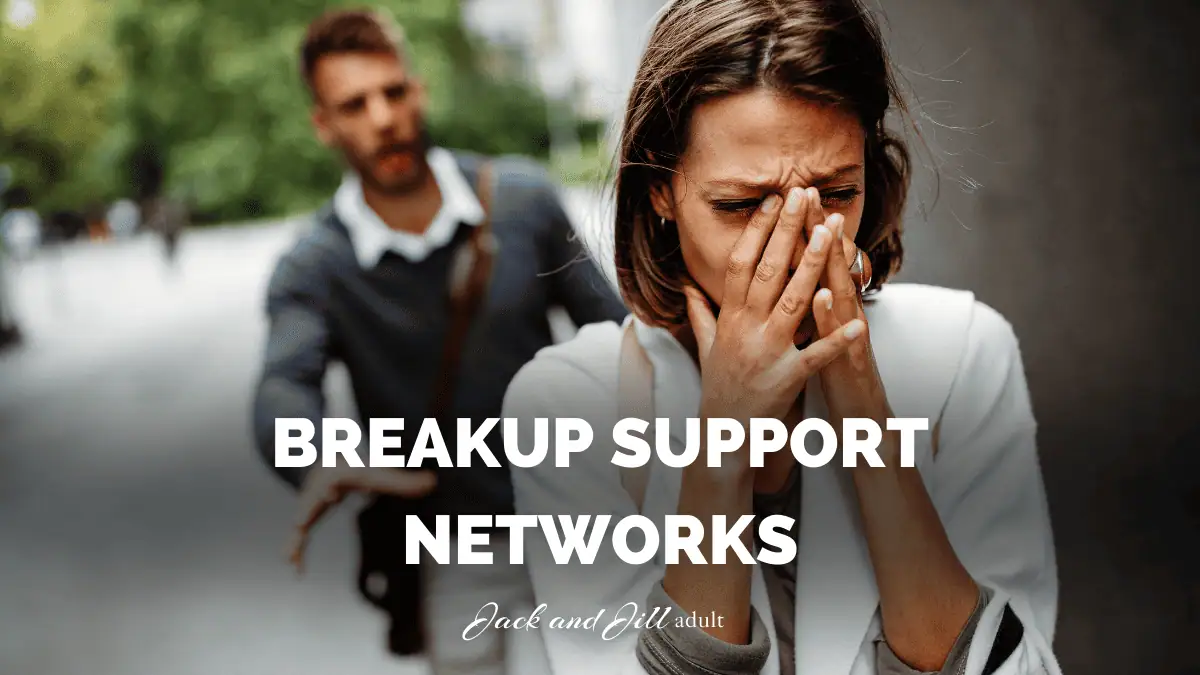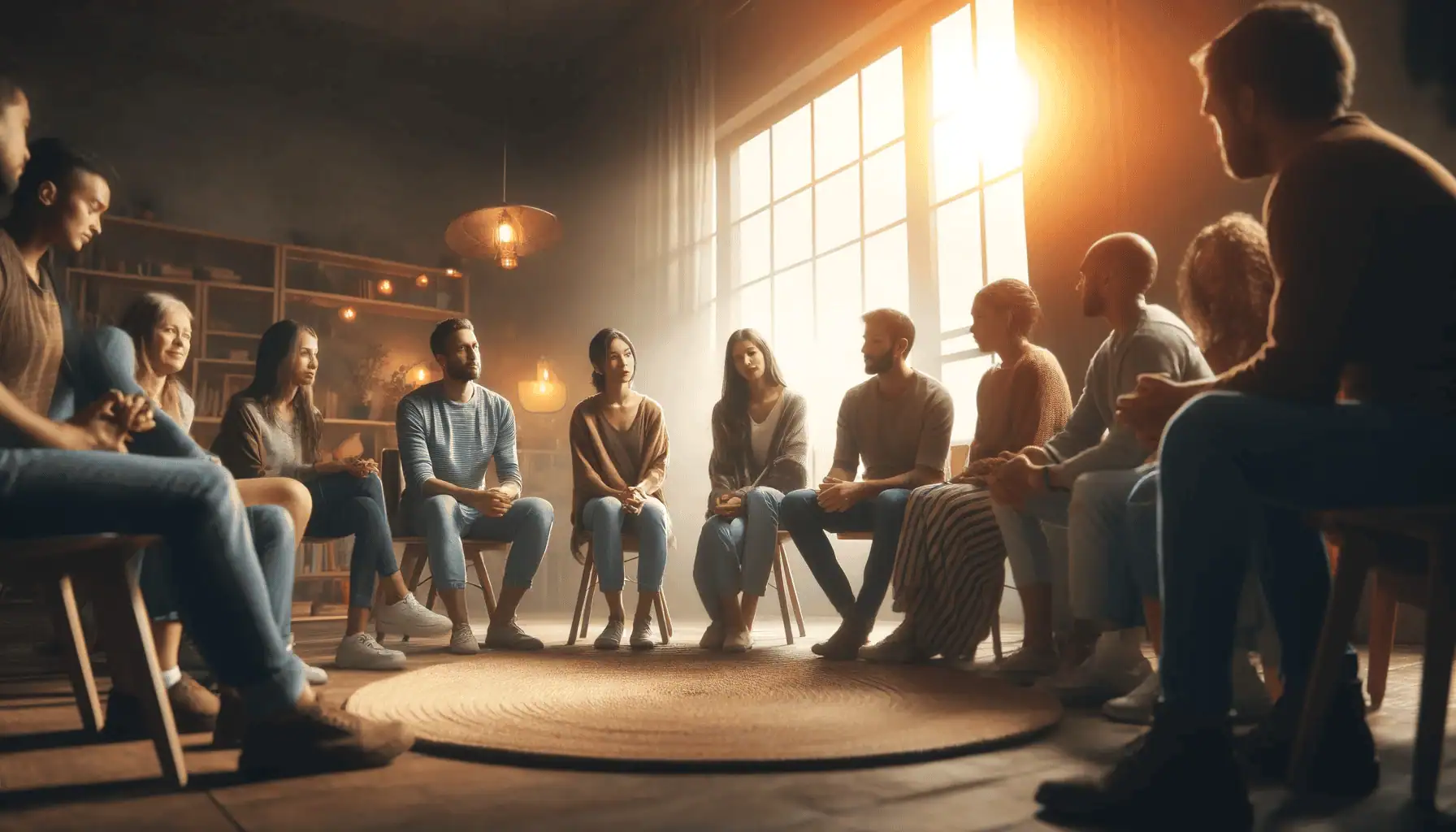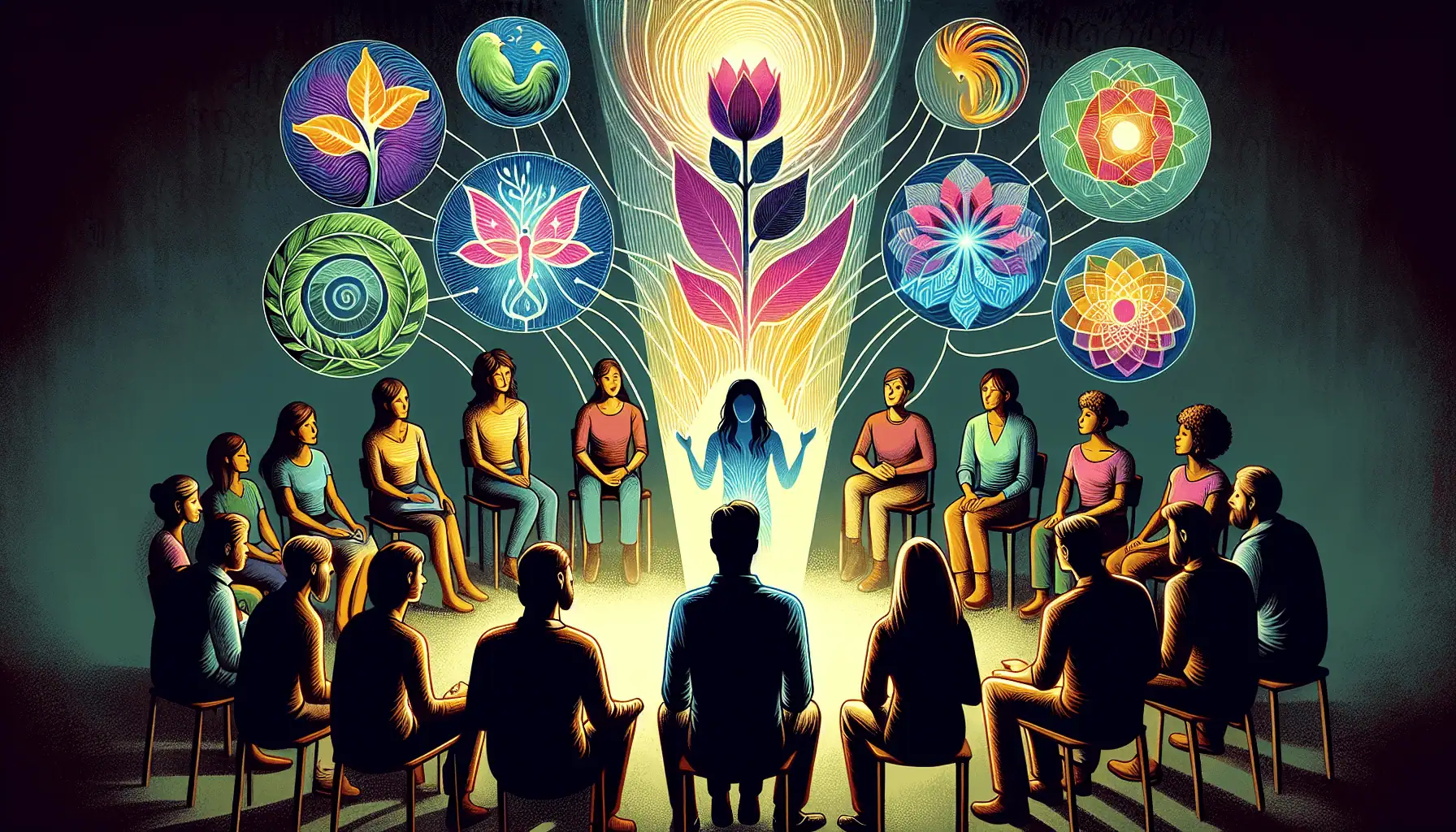
Breakup Support Networks
If you’re grappling with the end of a relationship, you might be seeking a compassionate community that understands your pain. Breakup support networks are essential, offering solace and practical advice. But where do you find these networks, and how can they specifically help you heal and move forward?
This article cuts through the confusion and introduces the range of breakup support networks available, from online forums and in-person therapy groups to social media circles, guiding you toward the support system that best fits your journey.
Key Takeaways
- Various breakup support networks such as online forums, in-person therapy groups, and social media circles provide essential support for those dealing with the emotional impact of relationship endings.
- Shared experiences in support groups can ease the feeling of isolation, foster empathy, and catalyze a healing process that encourages emotional resilience and personal growth.
- Creating a tailored support system, balancing professional and peer support, and drawing inspiration from others’ stories are crucial steps in reconstructing a sense of self and building a positive future post-breakup.
Exploring the Landscape of Breakup Support Networks

The tapestry of breakup support networks is rich and varied, woven with threads of connection that stretch across digital and physical spaces. This diverse landscape offers solace and strength to individuals navigating the aftermath of a breakup. Some examples of these support networks include:
- There are online forums where individuals can anonymously share their experiences and receive advice from others who have gone through similar situations.
- In-person therapy groups are where individuals can connect with others in a safe and supportive environment and receive professional guidance.
- Social media circles are places where individuals can find support and understanding from friends and acquaintances who have experienced similar situations.
These networks, often consisting of other women, form the pillars of a supportive environment essential for healing from breakups.
These groups provide a lifeline in challenging moments through virtual communities or in-person connections for family members and group members alike.
Online Forums and Communities
Online support groups in the digital realm offer a sanctuary for the heartbroken, blending the comfort of anonymity with the convenience of accessibility. Websites like Loveshack.org exemplify the power of online communities in bringing together those coping with the complexities of breakups and divorce. Here, you can find a collective heartbeat of support pulsing through every shared story and piece of advice.
With online meetings scheduled for specific times, such as those hosted by Men’s Group, there’s always a space where you can connect with others who understand your journey.
Therapy Groups and Workshops
Therapy groups and workshops are an option for individuals seeking a structured approach. They offer a safe healing space guided by facilitators with professional expertise and personal empathy. These therapy group settings can be powerful venues for collective healing, where each member’s journey is personal and part of a larger recovery narrative.
Through facilitated discussions and self-reflective exercises, these groups offer a path to navigate the complexities of heartache and rebuilding life after love has ended.
Social Media Support Circles
Another avenue for support unfolds as one navigates the social media landscape. Instagram, TikTok, Reddit, and Facebook have become fertile grounds for forming breakup support circles, where hashtags and groups connect those navigating relationship endings. These platforms offer a dynamic and immediate way to share personal stories and find a sense of belonging.
Social media support circles foster an environment of empathy and validation in a world where digital connections hold as much significance as in-person ones, especially for those working through the pain of a breakup.
The Healing Power of Shared Experiences

Shared experiences within support groups act as a soothing balm amid the emotional rubble of a breakup, easing the raw edges of heartache as individuals connect over everyday struggles; a robust healing process unfolds, rooted in the understanding that no one is alone in their journey.
These safe havens empower participants to speak their truths, unveiling comfort and a renewed sense of purpose on their new life paths.
Finding Comfort in Common Struggles
The echo of similar stories within support groups diminishes the silence of isolation often accompanying a breakup. As group therapy sessions unfold, the shared pain and emotional turmoil become a collective experience, providing a sense of camaraderie and hope.
In these gatherings, whether in person or virtual, individuals find mirrors reflecting their struggles, reassuring them that their feelings are valid and understood. It is amid this togetherness that healing finds fertile ground, allowing hearts to mend in the company of others who have walked the same path of mental illness.
The Role of Empathy and Understanding
The tender threads of empathy and understanding are woven into the fabric of every support group, creating a tapestry of shared humanity. Here, amidst the emotional turmoil, individuals find solace in the compassionate presence of others who listen and relate to their stories. This deep sense of empathy cradles the spirit, encouraging hearts to heal and lives to move forward.
The understanding shared within these groups becomes a powerful catalyst for change, transforming the journey of heartbreak into one of growth and resilience.
Building Resilience through Breakup Groups

The supportive embrace of breakup groups often aids the quest to rebuild one’s sense of self after a breakup. Here, mutual support and shared experiences become the cornerstone of emotional healing, nurturing the resilience to face life’s uncertainties. The benefits of joining a breakup group include:
- Structured discussions that provide a roadmap for navigating the tumultuous journey of post-breakup life
- Collective wisdom from others who have gone through similar experiences
- Guidance and understanding at every turn
These groups offer a safe space for individuals to heal and grow after a breakup.
Developing Self-Care Strategies
A key aspect of resilience is the cultivation of self-care, a practice that breakup support groups champion with vigor. Within these communities, members exchange practical advice and coping strategies, equipping each other with the tools to manage the rollercoaster of emotions following a breakup. From learning to moderate behaviors that may hinder healing to embracing activities that foster recovery, such as journaling and meditation, these groups help individuals create a new normal that prioritizes their well-being.
Setting Boundaries and Reclaiming Independence
As hearts mend, the ability to set boundaries and reclaim independence becomes vital to the healing process. Breakup groups serve as a sounding board for sharing strategies on handling co-parenting challenges, navigating legal intricacies, and stepping into a life marked by newfound autonomy.
The encouragement to explore and embrace new interests within these circles paves the way for individuals to rediscover their independence and redefine their identities beyond the context of the relationships they’ve left behind.
Tailoring Your Support Network to Fit Your Needs

As every healing journey is unique, finding a support network that resonates with one’s needs is paramount. Some options for building a support system include:
- Seeking professional referrals from therapists or counselors
- Joining support groups or online communities with others who have similar experiences
- Establishing a personal group with specific ground rules and boundaries
Customizing a support system is both an art and a science; finding what works best for you may take trial and error.
The choice of a breakup support group can be a pivotal decision that shapes the recovery process and influences the trajectory of personal growth.
Considerations for Selecting a Support Group
Several factors warrant careful consideration when selecting a support group. The qualifications of the facilitator, the nature of group activities, and the confidentiality policies in place all contribute to the group’s effectiveness. Engaging in activities that promote personal well-being, such as meditation and yoga, within the group setting can enhance the healing experience, making it important to choose a group that aligns with one’s personal healing goals.
Balancing Professional Help and Peer Support
Breakup recovery often involves a balanced approach combining professional counseling and peer support. When complemented by the empathy and shared experiences of peer support, a therapist’s guidance offers a comprehensive framework for healing.
This synergy provides a scaffolding for individuals to rebuild their emotional strength and navigate the complex terrain of heartbreak with a supportive community at their side.
Transformative Stories: Learning from Others’ Journeys

Storytelling wields great power within support groups. Through the sharing of personal journeys, individuals find the courage to confront their own challenges and begin to see the possibilities of a reimagined life.
These narratives of transformation serve as a beacon of hope, illuminating the path forward and reinforcing the belief that healing is not only possible but imminent.
Overcoming Challenges Together
Overcoming challenges together, a hallmark of effective support groups fosters solidarity. In the company of other members, the weight of grief is distributed, making it easier to bear and process. As members share their experiences, they collectively navigate the maze of emotions that a breakup elicits, offering each other empathy, understanding, and affirmation that they are not alone in their struggle.
Inspiration and Motivation from Peers
Seeing peers’ resilience and growth within a support group can inspire and boost self-confidence. It is one thing to hear advice from experts but quite another to see someone who has walked in similar shoes emerge stronger and more self-assured.
As members share their successes and setbacks, they create a collective narrative of hope and determination, reminding each other that the end of a romantic relationship is not the end of the road but rather a new beginning.
Summary
As we draw this guide to a close, we reflect on the diverse tapestry of breakup support networks that provide solace, the shared experiences that promote healing, and the inspired stories of those who have navigated the choppy waters of heartbreak. These virtual or in-person networks are more than just a collection of individuals; they are communities that foster growth, resilience, and newfound independence. Embrace the journey of healing, knowing that with the proper support and personal dedication, the path to recovery is illuminated with hope and possibility.
Frequently Asked Questions
What types of breakup support networks are available?
You can find breakup support networks through online forums, therapy groups, workshops, and social media circles. These networks provide unique platforms for emotional support, allowing you to connect and heal with others going through similar experiences.
Can online support groups provide the same level of support as in-person groups?
Absolutely! Online support groups offer anonymity and convenience, allowing individuals to share experiences and seek advice comfortably, and can be just as supportive as in-person groups. Give it a try and see the difference for yourself!
How do therapy groups and workshops help with breakups?
Therapy groups and workshops offer a supportive environment led by experts. They allow participants to share and reflect, which aids in the healing process after a breakup. They provide a safe space for personal growth and to feel understood.
Are there activities within support groups that promote personal well-being?
Support groups often include activities like meditation, yoga, and journaling to promote personal well-being and aid recovery. These activities can be beneficial and enjoyable for participants.
How can I choose the right support group for my needs?
To choose the right support group, consider the facilitator’s qualifications, the group’s activities, and confidentiality policies. Balance professional help with peer support for comprehensive care. Trust your instincts, and don’t hesitate to seek the right fit for your needs.

